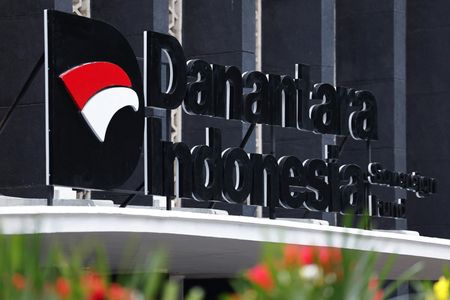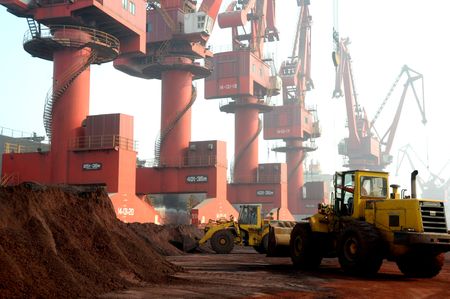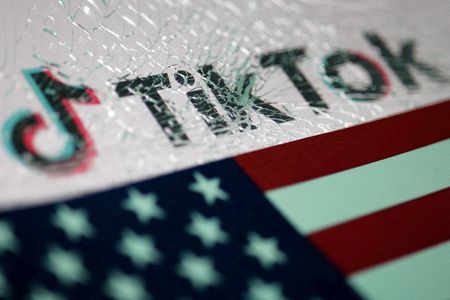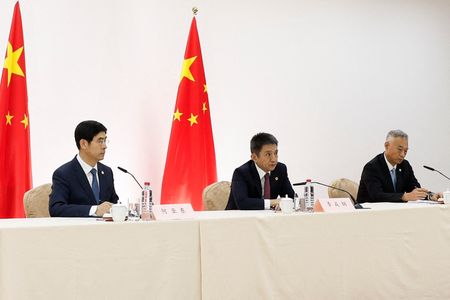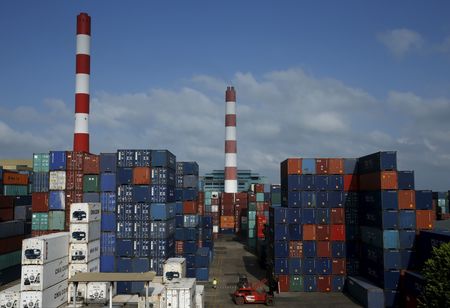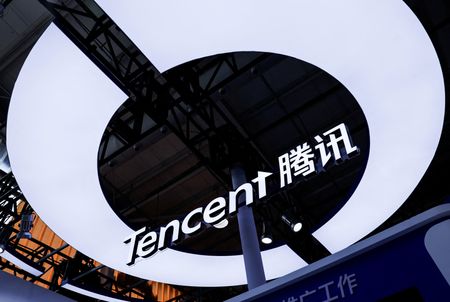By Makiko Yamazaki
TOKYO (Reuters) – Japan’s exports fell for a fourth straight month in August, government data showed on Wednesday, as elevated U.S. tariffs took a deeper toll on the country’s automotive and other manufacturing sectors.
“Japanese automakers are still mostly absorbing the tariff costs by cutting export prices to maintain U.S. sales volumes,” said Saisuke Sakai, chief Japan economist at Mizuho Research.
“But some of them, unable to withstand rising costs, have begun increasing prices to pass them on to consumers,” he said.
“Coupled with growing uncertainties over the U.S. economy, the tariff impact on Japan’s exports and output is set to intensify towards the year-end.”
Total exports by value dropped 0.1% year-on-year in August, the data showed, less than a median market forecast for a 1.9% decrease and following a 2.6% fall in July.
Exports to the United States plunged 13.8% in August from a year earlier, representing the largest drop since February 2021, dragged down by a 28.4% fall in automobiles and 38.9% plunge in chipmaking equipment.
The volume of U.S.-bound shipments fell 12.0%, extending the 2.3% decline seen in July.
The export plunge helped halve the trade surplus with the U.S. to 324 billion yen ($2.21 billion), the smallest since January 2023.
Exports to China were down 0.5%, while those to Asia and the European Union rose, partially offseting the plunge in U.S.-bound exports.
Total imports dropped 5.2% in August from a year earlier, compared with market forecasts for a 4.2% increase, reflecting lower oil prices.
As a result, Japan ran a trade deficit of 242.5 billion yen ($1.66 billion) in August, compared with the forecast of a deficit of 513.6 billion yen.
Washington agreed on a baseline 15% tariff rate on nearly all Japanese imports in late July, down from the initial 27.5% on autos and a 25% duty threatened for most other goods, offering some relief to Japanese exporters.
But the impact remains significant, particularly for Japanese automakers and auto parts suppliers, as the levy is still multiple times higher than their previous 2.5% rate.
According to a poll by Japan Center for Economic Research, 37 economists surveyed predict the economy will shrink by an annualised 1.1% in the current quarter, reflecting weak overseas demand.
Bank of Japan Governor Kazuo Ueda has vowed to go slow in hiking rates due to uncertainty over the impact of U.S. tariffs on Japan’s economy.
Economists are focused on how falling exports will affect corporate spending and wages. Japanese corporate spending on plant and equipment has so far shown no signs of abating, rising 7.6% in the April-June quarter from a year earlier.
($1 = 146.5200 yen)
(Reporting by Makiko Yamazaki; Editing by Sam Holmes and Shri Navaratnam)


